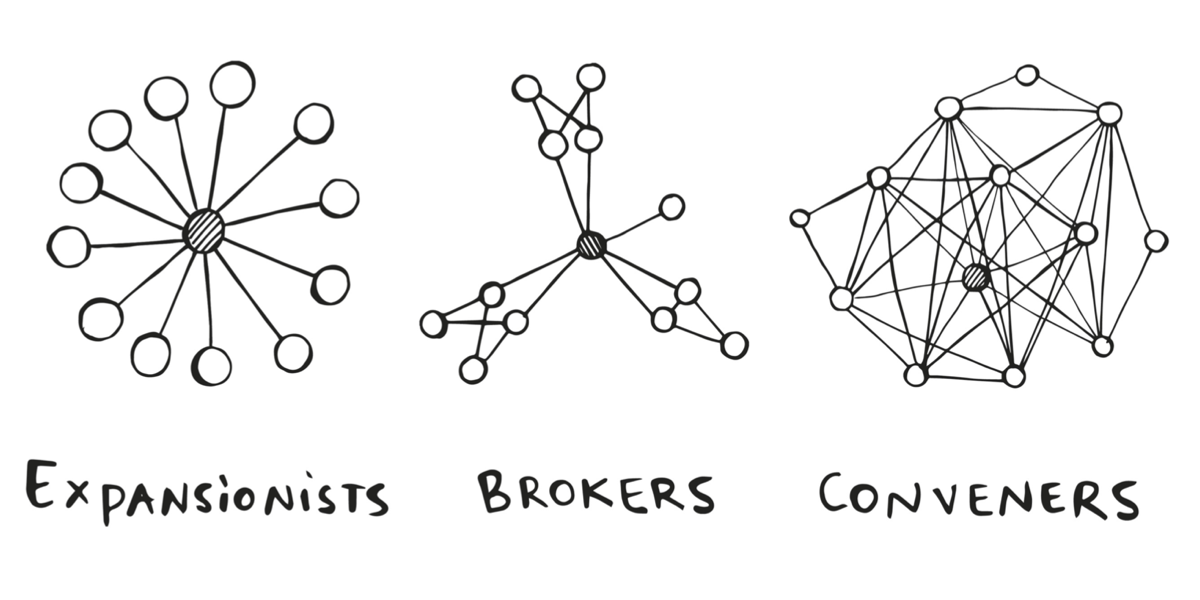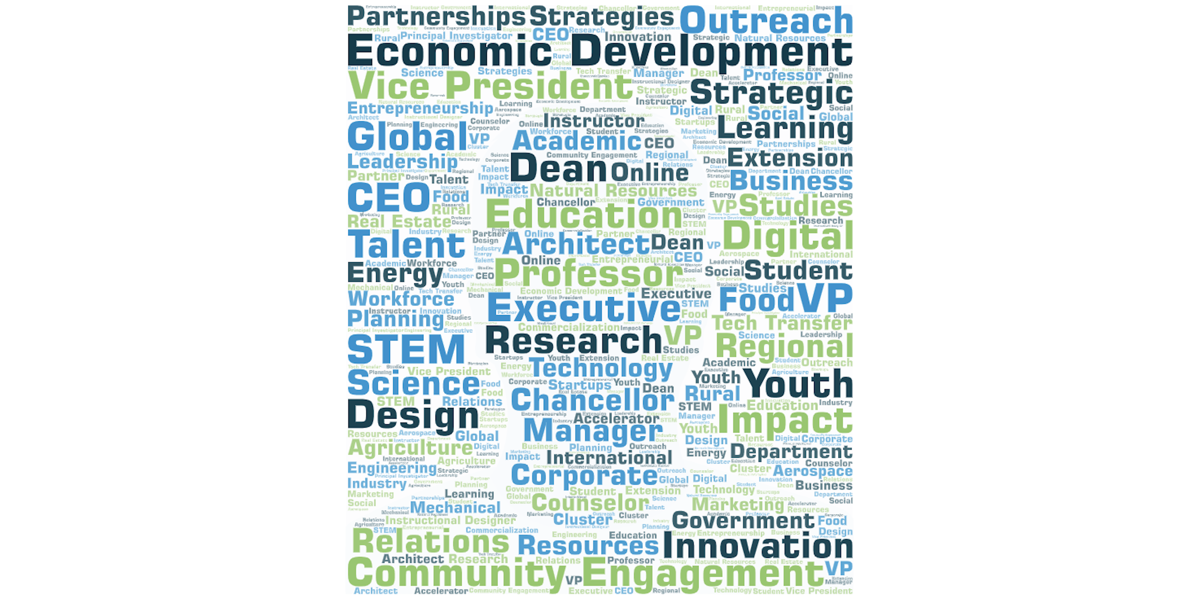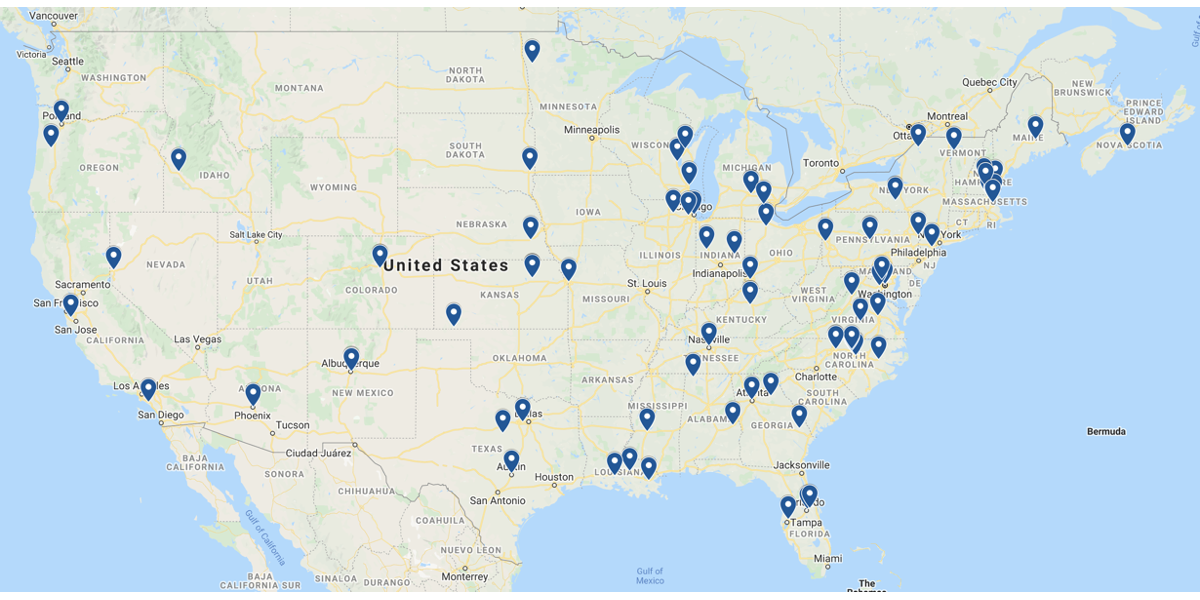- Feb 1, 2022
Diversifying Your Network and the Social Chemistry of Venn Community
- Jim Woodell at Venn Collaborative
- 0 comments
I've recently been reading Social Chemistry: Decoding the Patterns of Human Connection. The author, Yale professor Marissa King, details the ways in which we grow and maintain our networks, and the different kinds of patterns that have emerged in her research. King describes three different kinds of networkers—expansionists, brokers, and conveners—and describes how the networking patterns of these types shape networks in different ways and lead to different kinds of networking outcomes. Read the book to learn more, or head to Assess Your Network for immediate gratification.
Image from Social Chemistry: Decoding the Patterns of Human Connection
In the book, King regularly notes the value of diversity and novelty in networks. It's great to build a network of people with whom you share knowledge, expertise, and interests. But for creativity, innovation, and problem-solving to thrive, having people with diverse perspectives in your network is critical.
I may be biased, but I think that active participation in the Venn Community will help you tap into the power of a diverse network. The Venn Community is still in its early stages but is already nearly 300 members strong. Among those members, you will find an array of professionals working on community and economic impact across talent, innovation, and place. Venn Community members are working in colleges and universities, economic development organizations, community organizations and nonprofits, government, and business and industry.
We recently took a close look at 100 randomly-selected Venn Community members. We looked up their titles and organizations to draw a portrait, if you will, of the Venn Community.
Graphic created with Wordart.com
As the word cloud (above) of Venn Community member professional titles shows, participants in the community represent a wide cross-section of roles in community and economic development. "Economic Development" and "Community Engagement" appear frequently in member titles, along with words like "impact," "innovation," and "talent," and many others.
Of the 100 members we looked at, about 60 work at universities or colleges. Among the other 40% are folks working in regional economic development organizations, entrepreneurial support organizations, consulting practices, foundations, research organizations, and membership associations. We knew that many of our community members would be in higher education. We were pleased to see so many other sectors represented.
Then there's geographic diversity. Included below is a map of the locations of those members we looked at who are in the U.S. or Canada. Other locations of members on the map, not visible in the graphic, include Hawaii; Puerto Rico; Perth and Tasmania, Australia; Cambridge, England; Stuttgart, Germany; Zürich, Switzerland; and Alexandria, Egypt.
Of course, members of the Venn Community are much more than their titles, organizations, or geographic locations. They're real people, working on real challenges and making real change happen in communities and regional economies across the globe. Consider getting more deeply engaged at Venn Community so that you can make connections with members and diversify your network. A great place to start is the Venn You: Introduce Yourself! group at Venn Community.
One great way to start building those connections is to join our weekly Venn Community Live sessions, every Tuesday and Thursday beginning February 8, 2022. See the note in italics at the top of this post for more information. We hope to see you there!I've recently been reading Social Chemistry: Decoding the Patterns of Human Connection. The author, Yale professor Marissa King, details the ways in which we grow and maintain our networks, and the different kinds of patterns that have emerged in her research. King describes three different kinds of networkers—expansionists, brokers, and conveners—and describes how the networking patterns of these types shape networks in different ways and lead to different kinds of networking outcomes. Read the book to learn more, or head to Assess Your Network for immediate gratification.
Image from Social Chemistry: Decoding the Patterns of Human Connection
In the book, King regularly notes the value of diversity and novelty in networks. It's great to build a network of people with whom you share knowledge, expertise, and interests. But for creativity, innovation, and problem-solving to thrive, having people with diverse perspectives in your network is critical.
I may be biased, but I think that active participation in the Venn Community will help you tap into the power of a diverse network. The Venn Community is still in its early stages but is already nearly 300 members strong. Among those members, you will find an array of professionals working on community and economic impact across talent, innovation, and place. Venn Community members are working in colleges and universities, economic development organizations, community organizations and nonprofits, government, and business and industry.
We recently took a close look at 100 randomly-selected Venn Community members. We looked up their titles and organizations to draw a portrait, if you will, of the Venn Community.
Graphic created with Wordart.com
As the word cloud (above) of Venn Community member professional titles shows, participants in the community represent a wide cross-section of roles in community and economic development. "Economic Development" and "Community Engagement" appear frequently in member titles, along with words like "impact," "innovation," and "talent," and many others.
Of the 100 members we looked at, about 60 work at universities or colleges. Among the other 40% are folks working in regional economic development organizations, entrepreneurial support organizations, consulting practices, foundations, research organizations, and membership associations. We knew that many of our community members would be in higher education. We were pleased to see so many other sectors represented.
Then there's geographic diversity. Included below is a map of the locations of those members we looked at who are in the U.S. or Canada. Other locations of members on the map, not visible in the graphic, include Hawaii; Puerto Rico; Perth and Tasmania, Australia; Cambridge, England; Stuttgart, Germany; Zürich, Switzerland; and Alexandria, Egypt.
Of course, members of the Venn Community are much more than their titles, organizations, or geographic locations. They're real people, working on real challenges and making real change happen in communities and regional economies across the globe. Consider getting more deeply engaged at Venn Community so that you can make connections with members and diversify your network. A great place to start is the Venn You: Introduce Yourself! group at Venn Community.
One great way to start building those connections is to join our weekly Venn Community Live sessions, every Tuesday and Thursday beginning February 8, 2022. See the note in italics at the top of this post for more information. We hope to see you there!


